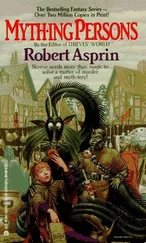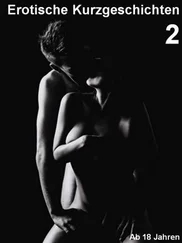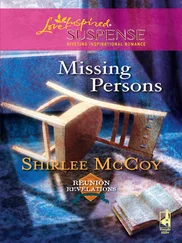He walked to the hallway and looked through the window that faced the street. Rego Park was quiet on Sunday nights. A few cars rolled down the avenue, but none stopped. He could wait for Fela in the armchair by the coat closet, sitting, looking at a magazine, still dressed. He sat down in the chair, glanced at the framed pictures of his mother and father, the photographs Fela had restored and enlarged years ago. Then he pulled himself up again. Why do you wait here? Fela would cry when she came in. You’re making me feel guilty! We asked you to come, didn’t we?
Pavel limped into the kitchen to make sure he had turned off the lights, to make sure there was no wetness anywhere around the sink. He looked at the time on the clock above the oven. It was an hour behind; they hadn’t changed from daylight savings time almost a year ago. Fela had been gone almost two and a half hours.
He went back to the bedroom. So what if he wanted to wear the short pajamas, feel young again? Who would see his body, who would make him feel embarrassed? When Fela came home, Pavel would put on a bathrobe, that was what. He straightened his back, unbuttoned his shirt, pulled off his undershirt. Then quickly put the pajama top over his head, so as to cover the chest. Certain parts of himself he did not like to see.
Already, sitting on the bed, in the short-sleeved pajama top and the pants he had worn in the day, Pavel felt better. His arms still had muscle; they were thick above his wrists. He rubbed at the skin on the inner part of his left forearm. The numbers had blurred; it was hard to make them out. Outside the blue tattoo his skin was white as an onion, even in summer, when the top of his head became a little red from the sun.
He didn’t like to expose his arms, and did it only rarely: too much attention. He had been walking on the boardwalk near Coney Island many years ago. Without the children, just he and Fela, with Sima and Chaim, new arrivals to New York. The women had strolled ahead, talking tentatively; they had never met. Chaim and Pavel chattered quickly behind them, Pavel planning business connections for Chaim, Chaim murmuring polite refusals. Chaim had been tall and joyful, his marriage still young; he had looked away from Pavel’s face every few seconds to glance at the slim, swaying figure of his wife. It had inspired Pavel to look at Fela every few seconds too, her short amber hair and easy walk, her soft hands grasping the purse in front of her.
A night out in summer, a warm night. Pavel was excited; they had eaten a full meal. And he was among friends, an old friend, a boy he loved. Chaim, used to the casual dress of Tel Aviv, was already in shirtsleeves. Pavel decided to take off his jacket. They were on the beach, after all; where else could one wear short sleeves without feeling too self-conscious? A light summer cap protected his sparsely covered head.
A man had walked slowly toward the four of them, passed by the ladies and nodded. Pavel had smiled at the stranger: a Jewish face, sandy haired, not too handsome. But the man did not smile back. He was close to Pavel, nearing him, and peering at something strange on Pavel, below Pavel’s eyes. Pavel looked down. Did he have a stain somewhere? Then the man stopped.
“Listen,” he said, looking at Pavel, then at Chaim, then at Pavel again. “Why the hell don’t you have that removed?” The man’s accent was American.
Pavel stared. The man gestured at Pavel’s tattoo. “There’s surgery that can do it, without too much pain.”
Pavel’s jaw jutted forward. “What?” he said, very quietly. Then louder, “What?”
The man stepped back. “Listen, I didn’t-”
Pavel’s rage threw itself out of his mouth. “Should I be ashamed? Should I be ashamed?”
The man’s lips were parted. No response.
“Tell me, sir, you who know so much, should I be ashamed?”
The man was several paces away. “Listen, no hard feelings, okay? Just forget it.”
“Forget it,” Pavel called after him. “Yes, just forget it.” He was frozen, his feet unable to lift themselves from the wooden planks of the boardwalk.
Chaim tapped him on the shoulder. Pavel turned toward Chaim’s calm, frowning face, then toward the women. Fela’s hands shook; the lines in her forehead looked deeper, more numerous. Sima, with no English, stood still, uncomprehending.
But Chaim understood. He’s forgotten it, Chaim said in Yiddish, he’s forgotten it. The rest of us should be so lucky.
Pavel had breathed out. Relief. His wife had tears in her eyes, and her tears made him suddenly protective. Oy, Fela, he had said. Don’t be upset. I told him, didn’t I?
But after that night on the boardwalk, Pavel tried to keep to long sleeves. He rolled them up in the workshop, where the cutters and pressers were used to men and women with numbers, or at home, where his children did not seem to notice. Outside his arms were covered. Inside, in his office, in the kitchen, in bed, he wore whatever he pleased.
It was wrong to judge everyone from this one stupid man, but Pavel knew others who had had similar encounters: a word here, a peculiar glance there. Mina Elbaum, a woman Pavel had known and liked for years, actually had had hers removed in the 1980s, when the procedure was no longer experimental. For some people, even looking at it themselves made them upset.
No one would dare criticize Pavel for his tattoo, or his accent, or almost anything now. People today thought more highly of a person who had been through the war. But Pavel kept on his long sleeves. It was an improvement, he supposed, to receive the opposite reaction, something that came like a compliment, it was better than a criticism, but still it was no good. A number made no one a hero. Plenty who suffered worse were not numbered. The dead were not numbered. His children’s friends, adults, when they happened to meet him, bore an expression of awe. Sometimes that awe made Pavel feel worse.
What made him feel better was stones. Not just stones, but stones in their rightful place. It was not a hobby of his, the stones. It was the contribution Pavel made. He had friends who made speeches and friends who wrote books, friends who organized the remnants of their town to make a memorial book. He had friends who had made quite a bit of money and gave it to good causes, causes everyone believed in, monuments, museums. What Pavel did was smaller. But just as important. It was said that he who saves one life saves the whole world. Everyone who was alive was alive in part because someone had helped him to be saved. But what about the dead? Their place in heaven could not be stolen. But their place on earth-that was always in doubt. Pavel helped to mark their place.
Early on, some years after the liberation, the French had come to the site of the former concentration camp with an ugly project. They wanted to exhume the mass graves and extricate the Frenchmen, bring them back to France for a real burial. Pavel had been on the Jewish Committee of the displaced persons camp just after the war, and the ones left in New York had called an emergency meeting. It was one of the proudest things he had done, speak out, halting, angry but sincere, that the dead could not be exhumed. It was Jewish law, and Jewish law superseded French desires to have their soldiers and resistance fighters and even their children returned to them. Each mass grave was long sealed, closed with a large stone, inscribed with the approximate number of buried bodies. The committee agreed with Pavel, brought their resolution to the international administration of the camp. The bodies stayed put.
He who saves one life saves the whole world. And he who saves one marker for the dead? It couldn’t be the same. But people trusted Pavel to do his one task, his one project. That was why Henry Budnik insisted on Pavel’s oversight of his own stone. That was why it was important for things to be in their rightful place. If Pavel made a mistake, who would correct it? If Pavel were not there, who would watch over it?
Читать дальше











